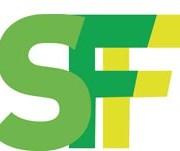The Suzanne Furstner Foundation supports language and educational training across the world. Introduced in 2007 in memory of a friend and colleague who died tragically in a road accident, the foundation funds an annual scholarship enabling one aspiring TEFL teacher to take a training course to help them on their way. The TEFL course has been offered in a different place each year: Seville, Playa del Carmen, Milan, San Francisco and Barcelona. This year, applicants were competing for the opportunity to take a CELTA and a language course close to Suzanne’s home, in the seaside town of Brighton.
All scholarship applicants are assigned a task, involving both a language awareness exercise and a piece of creative writing based around the TEFL course destination. As ever, the standard of the applications that we received was exceptional, and it was a very hard choice. Anna’s entry was original, touching, passionate and relevant, and we would like to congratulate her on her success.
We all loved reading Anna’s piece and hope that you will too.
Congratulations Anna!
6 Weeks in Brighton: – A girl named Su.
We met at a pancake party. That’s what she called it. In fact, it was Pancake Day and us Brits had congregated with our new international friends to celebrate. At home it was an occasion that passed many of us by, however out here it seemed to be an integral part of our cultural heritage.
I’ve been friends with her since then. Her name is Su.
Su made the ideal companion for a culture shocked English teacher embarking on a South Korean sojourn. She was born and bred in the city of Busan. Su is a seaside girl. The lure of other coasts took her to Brighton to learn English, but now back in Busan and educated in the British lingo, Su was on hand to educate me. Whenever I muddled my way through a menu of unrecognisable letters, fearful of ordering live octopus or silkworm, Su was there to ensure the table was filled with soups, dumplings and Korea’s own spicy take on a pancake.
Six months on, the world around me had become more familiar. Coming up the steps of the underground I barely noticed the old lady behind me tugging on the hem of my skirt, fixing a loose thread. Or the tie-dyed puppy in front of me, with it’s teeth wrapped around the strap of my bag. These occurrences had become everyday. I had far more pressing matters. Typhoon Bolaven was forecast to strike in the coming hours and the black clouds were looming over Busan. I was more than a little nervous. However, Su had convinced me that my worries were unfounded. ‘They say it won’t be that bad,’ she had told me over the phone earlier. ‘Sort of like a British summer day.’
‘Anna.’ She waved. She whisked me away from the neon glow of the main streets to a road which was empty, except for one solitary wooden coffee hut. ‘This is my friend Hyong. Introduce yourself,’ she said with wicked encouragement. ‘Jonun Anna immnida! Bangapsamnida!’ Her friend’s eyes lit up at my attempt at basic conversation.’
‘You see, that’s why I learnt English,’ she sighed. ‘I just wanted to be able to talk to people.’ Su and I always ended up discussing our passion for language and affectionately mocking each other’s cultures. Our coffees arrived. ‘Do you have an extra sachet of sugar? Do you know if you are going to use it?’ I asked. ‘No, it’s all yours.’ She gave me the sachet and smirked.
‘That’s what confused me the most when I first arrived in Brighton. I thought I could speak English well. But this British way of speaking, I didn’t know if it was a question or a request or a statement.’ Having confused many non-native speakers with my own convoluted British indirectness, I am sympathetic. I recalled the array of cross-cultural mishaps I have been involved with, or the cause of. One particular with a melon, but that’s a story for another day. It reaffirms to me that the language classroom has to be brought to life. Real life.
She continued, ‘But you’ve just got to let yourself get it wrong. If you want to learn a language you have to open your mind first. ’ She doesn’t know how perfect a soundbite she has whipped out for me. But there is no PR spin behind her statement. It ’ s honest. She’s been through the exhilarating, exhausting, baffling and life changing process of learning another language.
They say that the course of true love never runs smoothly and my own route to becoming infatuated with English was a tumultuous one. In fact, I had to break contact with my native tongue altogether before I returned enamoured , with my tail between my legs. After University, I moved to Germany to become an intern at a cultural organisation. I barely spoke any German, but I threw myself into it.
It wasn’t the shuffling around of verbs that surprised me, or the cases. I knew what I was letting myself in for. However, what blew my mind was getting to understand the true meaning of words. The world became a different place when I spoke German. After that, all the idiosyncrasies of English came to light and I suddenly wanted to go around and tell everyone about grammar and semantics and tenses. I didn’t, instead I decided to become an English teacher.
I think about how learning a language has changed me and influenced the choices I have made in my life. I think about all the people I met because I was able to communicate with them. I look over at Su and think about who she is and who she’s met and the world she has got to know. She may have been born and bred in Busan, but when she speaks English, she is a Brightonian.
She is Su, the girl who used to go to the corner cafe every weekday, and chat to the owner whilst he made her a sarnie.
She is Su, who used to sit on the promenade with her friends, eating mushy peas and cheek biting vinegary chips.
She is Su, who drank a cuppa every morning with her single parent landlady nattering about the unpredictable British weather whilst the kids ran around looking for their thingamajig.
She is Su, whose weekends included pubs, tea rooms and pavilions. Piers, greasy spoons and boutiques. She met hippies, rockers and old ladies sat on benches and Spanish friends who told her to take a Friday afternoon siesta, in preparation for those weekends.
After a year of testing the TEFL waters, I am sure this holiday romance is going to get serious. A CELTA is what I need to make this my future. I imagine that future. I’m back in England, standing in front of classroom full of adults from all around the world. I’ll tell them that they aren’t too old to learn a language. I’ll tell them that they aren’t naturally bad at languages. I’ll tell them my story. And if they still don’t believe it. Well, I’ll tell them about Su.
If you are interested in being considered for future Suzanne Furstner Scholarships, please find more information here: https://www.cactustefl.com/about_us/suzanne_furstner_foundation/
Tags: scholarship, iatefl, efl, course, cactus, learning, tefl, english, tesol, language, celta, england,
Please read about previous Suzanne Furstner Scholarship winners:
Winner of the 2011 Suzanne Furstner Scholarship
Winner of the 2010 Suzanne Furstner Scholarship
Winner of the 2009 Suzanne Furstner Scholarship
Winner of the 2008 Suzanne Furstner Scholarship




 – Our Assistant Director of Studies in the UK,
– Our Assistant Director of Studies in the UK, 